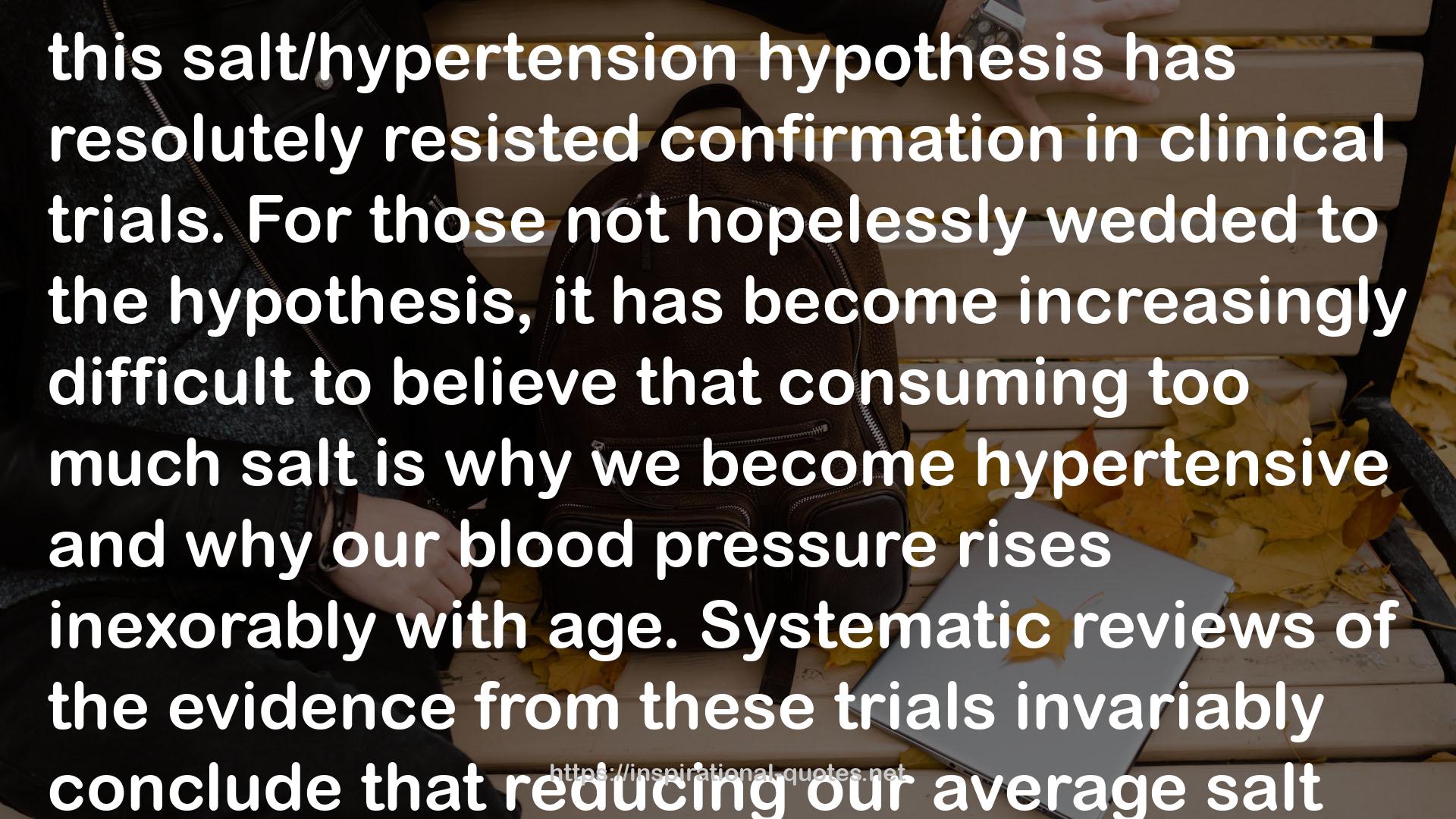" this salt/hypertension hypothesis has resolutely resisted confirmation in clinical trials. For those not hopelessly wedded to the hypothesis, it has become increasingly difficult to believe that consuming too much salt is why we become hypertensive and why our blood pressure rises inexorably with age. Systematic reviews of the evidence from these trials invariably conclude that reducing our average salt intake by half, for instance, which is difficult to accomplish in the real world, will decrease blood pressure by 4 to 5 mm Hg mercury, on average, in those with hypertension, and perhaps 2 mm Hg in those without (known as normotensives). But even stage 1 hypertension, the less severe form of the condition, is defined by having a blood pressure elevated by at least 20 mm Hg over what’s considered healthy. Stage 2 is defined as blood pressure elevated by at least 40 mm Hg over healthy levels. Hence, the fact that halving our salt consumption will result in a decrease of only 4 to 5 mm Hg suggests that the salt we eat is not the primary dietary driver of this disorder. "
― Gary Taubes , The Case Against Sugar
